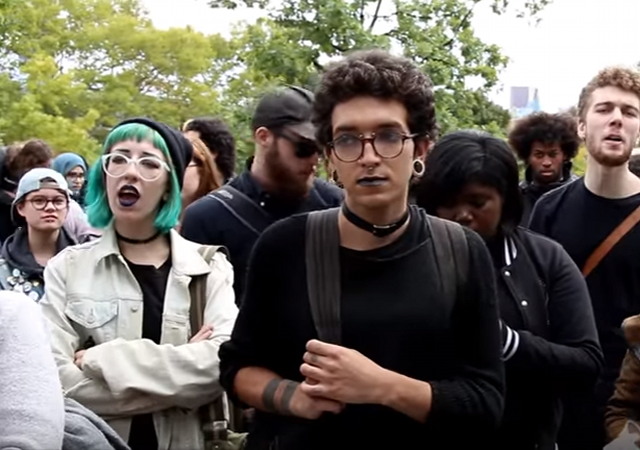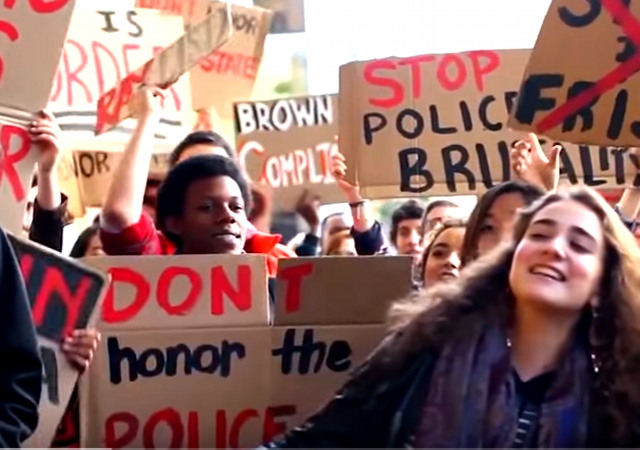Last month, Syracuse University (SU) made headlines when a faculty member in the Religious Studies Department dis-invited an award-winning Israeli NYU Professor and filmmaker from a campus event out of fear of offending the political sensibilities of her BDS-supporting colleagues (see our
prior posts covering the story).
At the time, pro-BDS faculty
signed a petition (subsequently posted onto Facebook) denying that any pressure to disinvite the filmmaker had existed and expressing their commitment to free speech and academic freedom.
But now many of these same professors, keen on moving the campus in a BDS direction, are making demands that call into question this articulated devotion to a campus community open to free expression.












 Any reasonable person would have understood that tweet to mean that if threatened with deadly force by the rioters, you could escape by driving through the mob. That tweet and advice was consistent with
Any reasonable person would have understood that tweet to mean that if threatened with deadly force by the rioters, you could escape by driving through the mob. That tweet and advice was consistent with 





